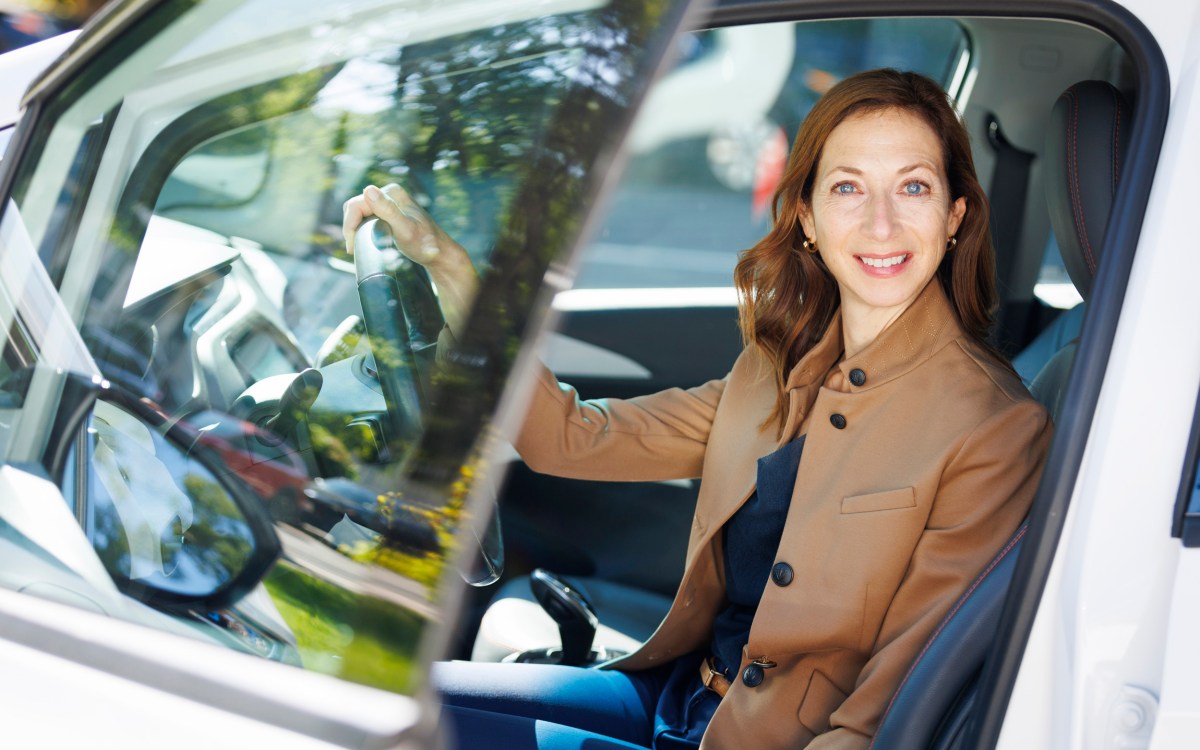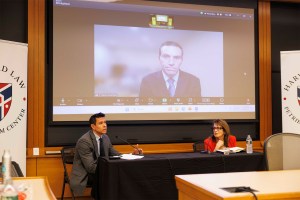Science & Tech
-

Harsh past might bare its teeth
Early adversity leads to higher aggression and fearfulness in adult canines, study says

-

What will AI mean for humanity?
Scholars from range of disciplines see red flags, possibilities ahead
-

‘Human exceptionalism is at the root of the ecological crisis’
Saving the planet requires getting over ourselves, argues author of ‘The Arrogant Ape’
-
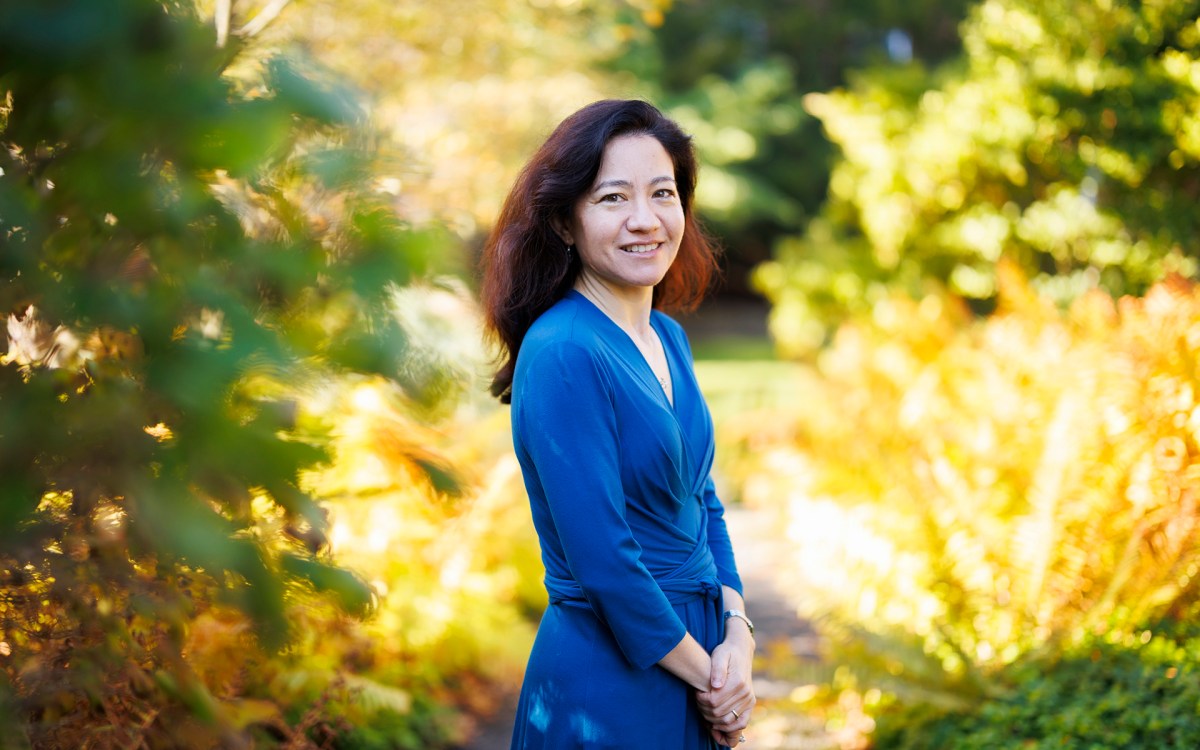
Lauren Williams awarded MacArthur ‘genius grant’
Math professor honored for theoretical breakthroughs with sometimes surprising applications across phenomena such as tsunamis, traffic
-
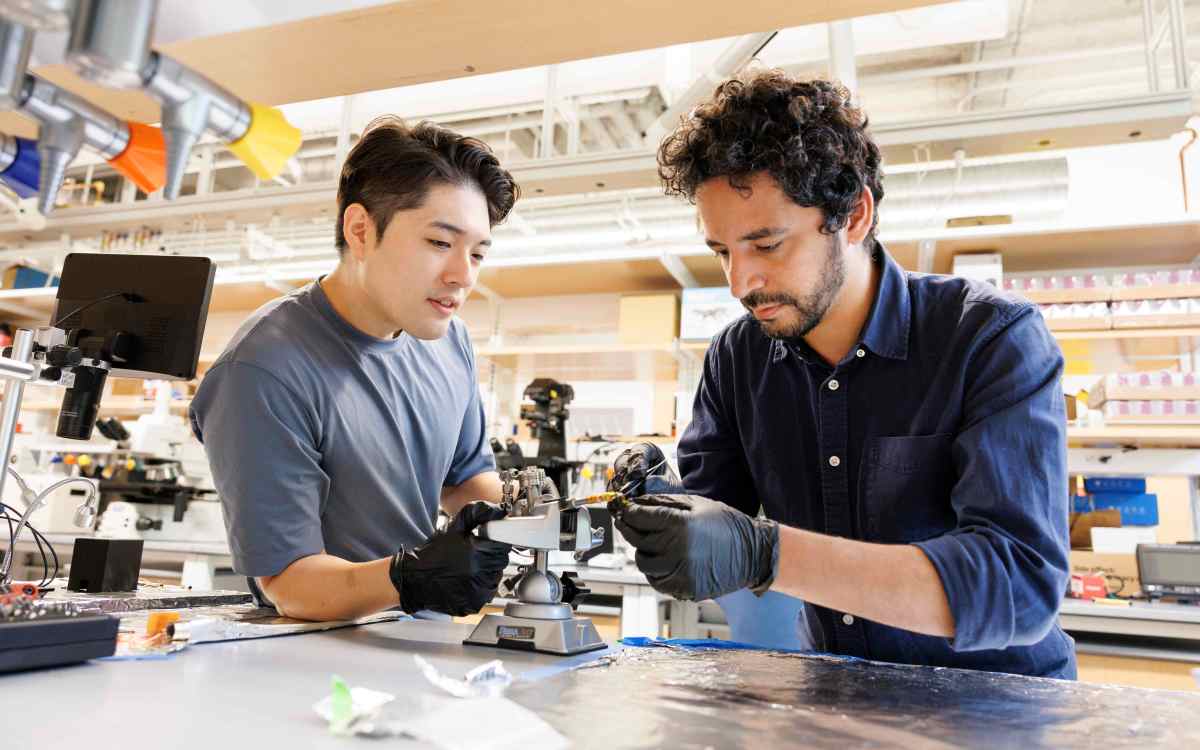
-
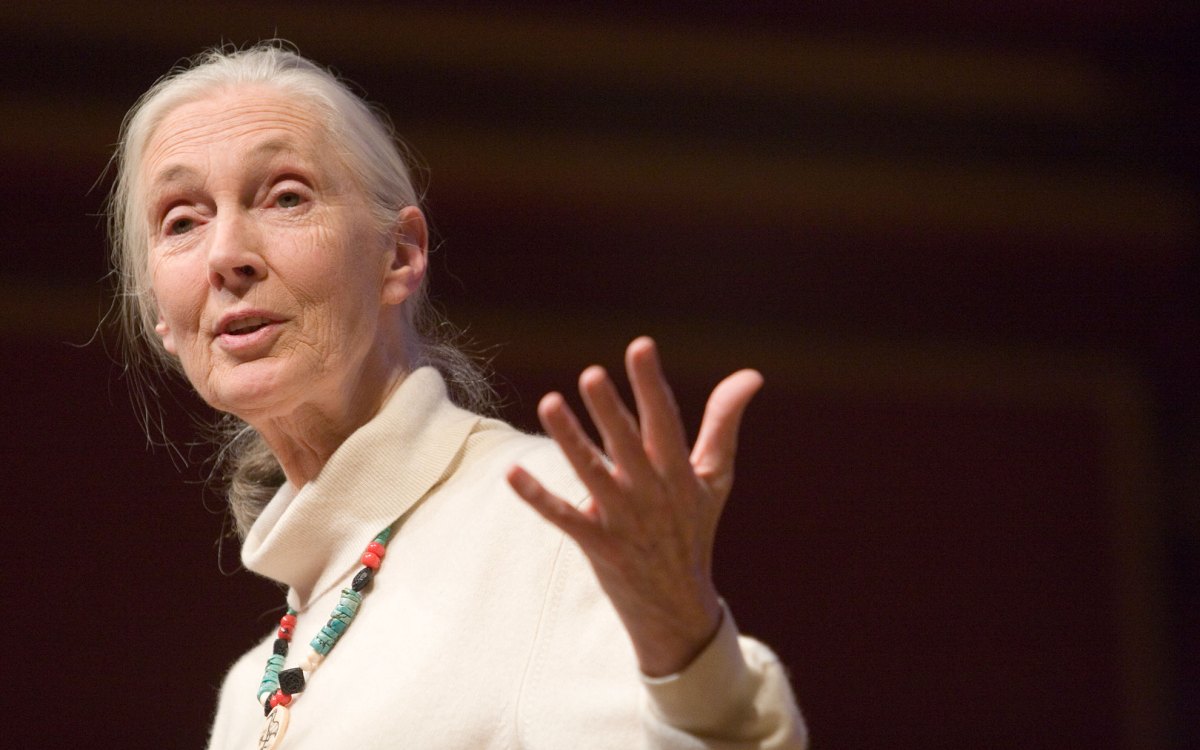
‘She had a sense of caring for everybody that she encountered.’
Richard Wrangham remembers his teacher and colleague Jane Goodall as a force of science, empathy, and hope
-
Lessons of the brain: The Phineas Gage story
During a construction explosion in 1848, an iron bar pierced the brain of foreman Phineas Gage. He survived, and his experiences opened a window into trauma and recovery.

-
Returning to Martin Luther King Jr.’s legacy
Students in a new Graduate School of Design course use what they’ve learned to help restore the urban legacy of slain Civil Rights leader Martin Luther King Jr.

-
Pinpointing punishment
It’s a question most attorneys wish they could answer: How and why do judges and juries arrive at their decisions? The answer, according to Joshua Buckholtz, may lie in the…
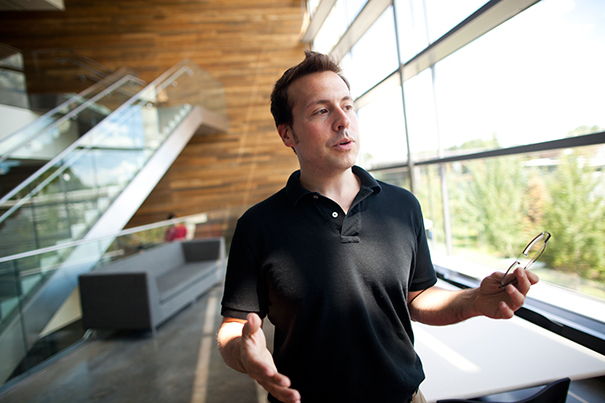
-
‘The Trouble with Jellyfish’
A video showcases “The Trouble with Jellyfish,” a new exhibition at Le Laboratoire Cambridge that spotlights a growing crisis beneath the sea.
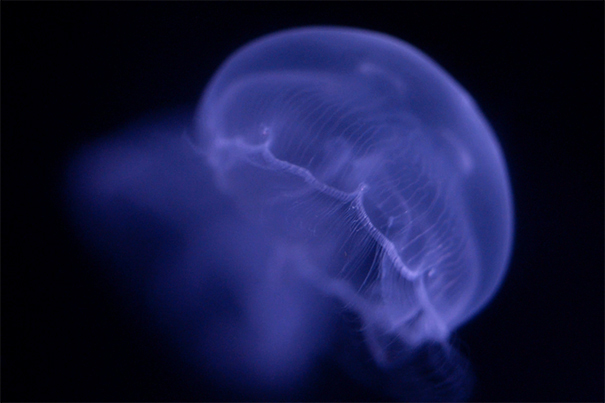
-
Dramatic chain of events
Harvard physicist Lisa Randall discusses the research behind her new book, “Dark Matter and the Dinosaurs.”

-
Wanted: Climate change solutions
Harvard will again fund grants of up to $150,000 for promising ideas to combat climate change.

-
Cosmic ‘Death Star’ destroys a planet
Astronomers announced today that they have spotted a large, rocky object disintegrating in its death spiral around a distant white dwarf star. “We’re watching a solar system get destroyed,” noted a Harvard researcher.

-
The tiny flying submarine
Harvard lab develops first insect-size robots capable of flight and swimming.

-
What it means when ‘The Doctor Is Out’
What happens when homophobia hits the hospital? “The Doctor Is Out: A Conversation with Dr. Mark Schuster on Being a Gay Physician at Harvard” was part of Harvard Medical School’s Diversity Dialogue series.

-
Harvard creates Global Institute
A multidisciplinary project to investigate climate change, energy security, and sustainable development in China has received the first $3.75 million grant from the new Harvard Global Institute.
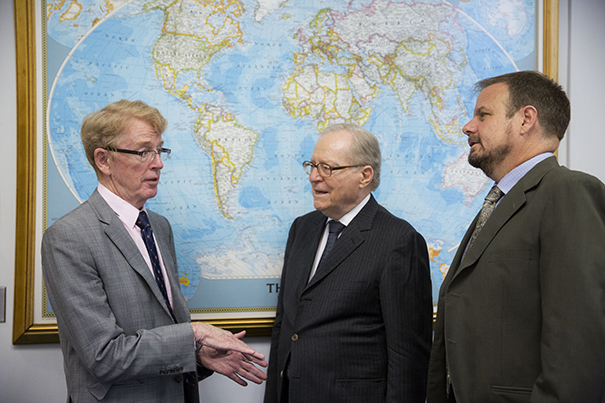
-
What drones can do
HUBweek drone demonstration at Harvard Stadium showcases potential usefulness of flying robots.
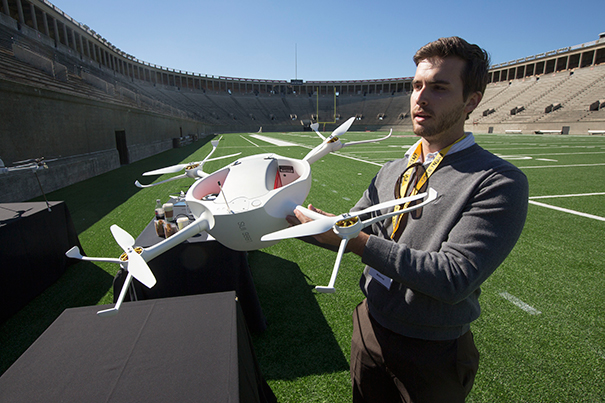
-
Big data, massive potential
Across Harvard, programs and researchers are mining big data, vast quantities of computerized information, often revolutionizing their fields in the process.

-
To sample climate concerns, look at nature
A panel of climate change experts at Harvard said that nature is telling us where we need to make changes to lessen future climate change impact: the places flooded or otherwise damaged in past storms.

-
Countering the cyberintruders
Harvard officials recommend steps to keep computer networks safe from cyberattacks.

-
How the brain builds new thoughts
A new study suggests that two adjacent brain regions allow humans to use a sort of conceptual algebra to construct thoughts.

-
Paying for health care with time
In 2010, people in the United States spent 1.1 billion hours seeking health care for themselves or for loved ones. That time was worth $52 billion. Disadvantaged socioeconomic, racial, and ethnic groups bore a disproportionate amount of the time burden.
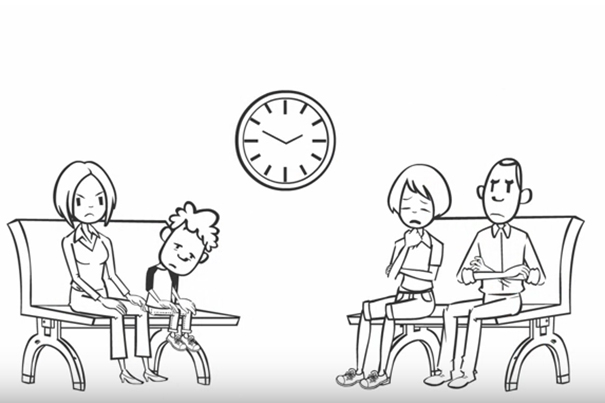
-
Students bring fresh perspective to environmental issues
Each year the Harvard University Center for the Environment awards funding to students who have an interest in environmental and energy research. The students’ backgrounds vary as widely as their topics.
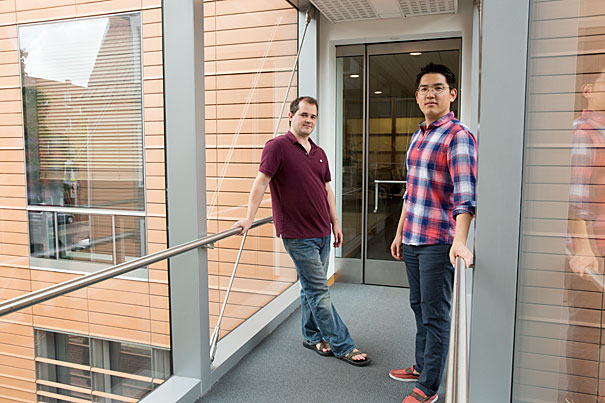
-
A watery Mars, a changed outlook
One of the lessons from this week’s announcement of liquid water on Mars is that the Red Planet is a much more diverse place than previously thought, one that holds a multitude of niche environments that might be more hospitable to life than average planetary conditions might indicate, said Professor Robin Wordsworth.
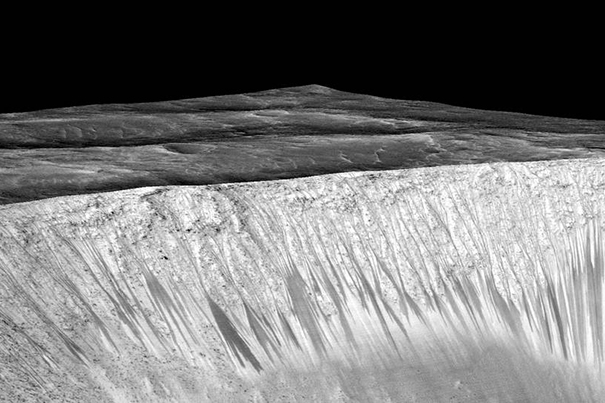
-
Political climate, changed
Chinese President Xi Jinping announced plans to institute a cap-and-trade program in the Asian giant by 2017. Harvard China Project leader Michael McElroy discussed the announcement and its potential effects on both climate legislation in the United States and on future climate talks in Paris.

-
Green storage for green energy grows cleaner
Harvard scientists and engineers have demonstrated an improved flow battery that can store electricity from intermittent energy sources. The battery contains nontoxic compounds, inexpensive materials, and can be cost-effective for both residential and commercial use.

-
Greening the electric grid with gas turbines
A new Harvard study pokes holes in the belief that huge quantities of storage will be needed before clean, renewable sources can make a significant dent in greenhouse-gas emissions from electricity generation.

-
Ups and downs of sea level
Professor Jerry Mitrovica shed light on the dynamics of sea level rise in a talk at the Geological Lecture Hall.
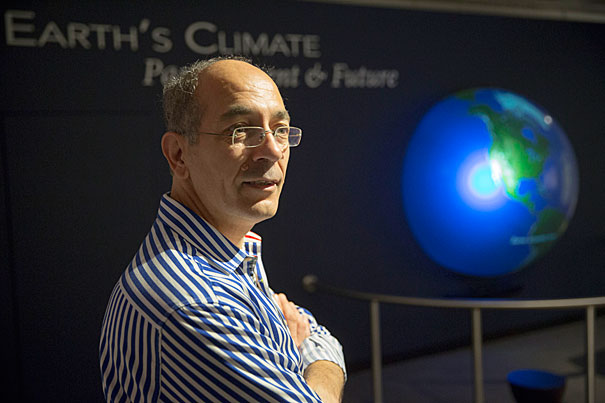
-
Climate test for forests
New research on northeastern forests is examining how the earlier arrival of warm weather might clash with genetic programming tuned to lengthening days and the duration and depth of winter cold.
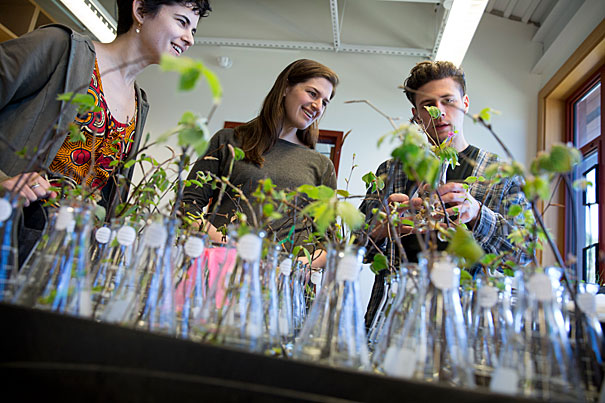
-
Paris as a living thing
During a summer program, Harvard students and their French counterparts drew on biology to sketch solutions to everyday problems in Paris.
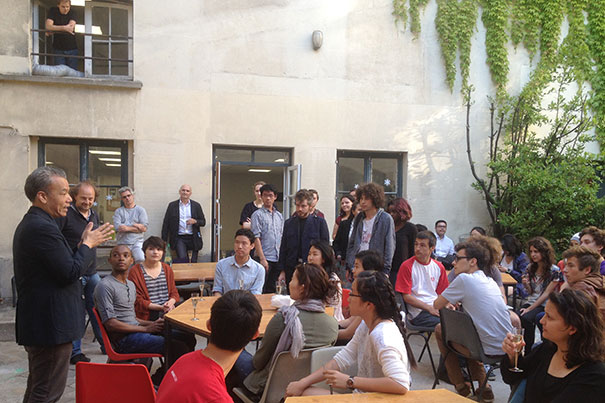
-
Poison in Arctic and human cost of ‘clean’ energy
The amount of methylmercury, a potent neurotoxin, is especially high in Arctic marine life but until recently, scientists haven’t been able to explain why. Now, research from the Harvard suggests that high levels of methylmercury in Arctic life are a byproduct of global warming and the melting of sea-ice in Arctic and sub-Arctic regions.
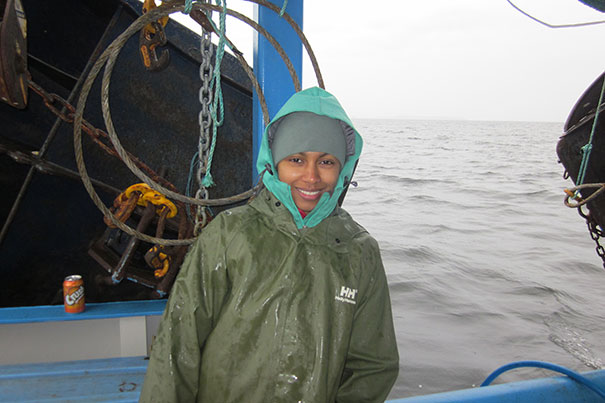
-
A fuller picture of cancer
A research team led by Martin Nowak has developed a model that captures both the shape and speed of tumor growth.
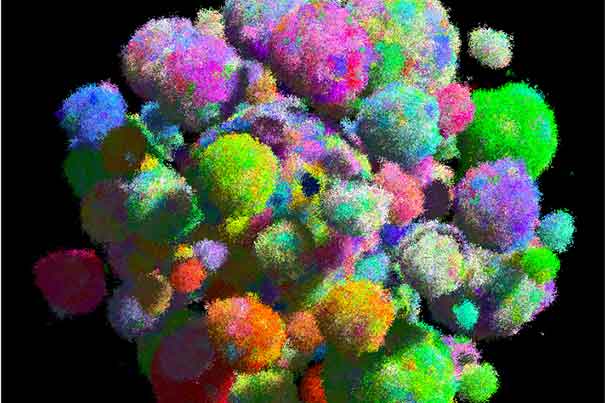
-
Interstellar seeds could create oases of life
Within the next generation, it should become possible to detect signs of life on planets orbiting distant stars, say researchers at the Harvard-Smithsonian Center for Astrophysics

-
Information, writ widely
The Dataverse 4 catalog expands access to research, across many Web platforms, even globally.
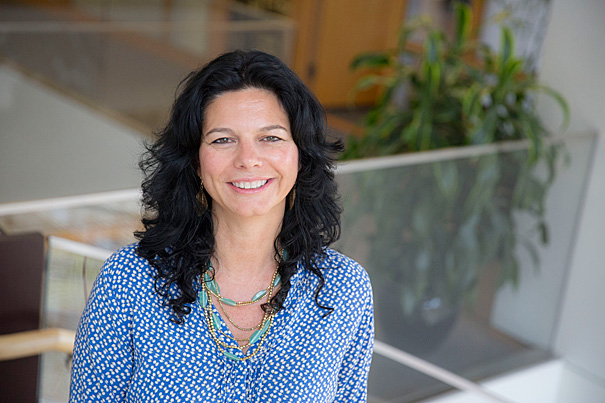
-
Wyss improves sepsis device
Scientists at the Wyss Institute have improved a device developed last year to treat sepsis that works by mimicking the human spleen. The new device is better positioned for near-term use in clinics.
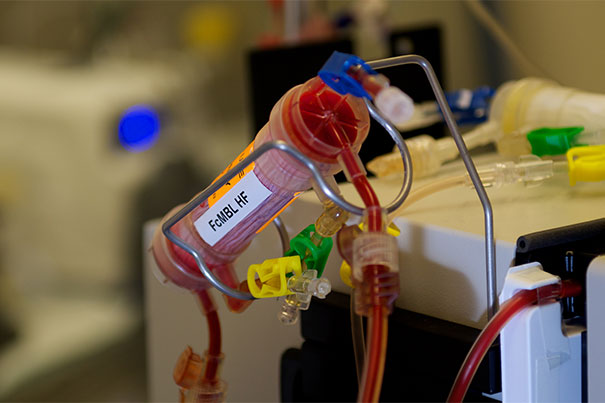
-
It was California or bust
A group of Harvard and MIT students has pedaled its way to the Pacific Ocean from Washington, D.C., with stops along the way to lead science “learning festivals” to promote STEM learning among children.

